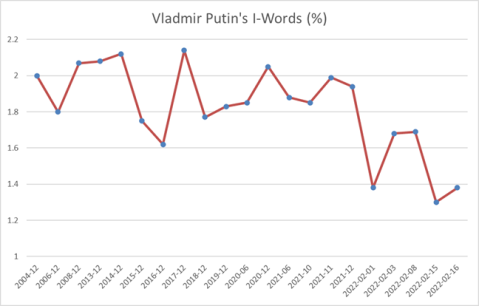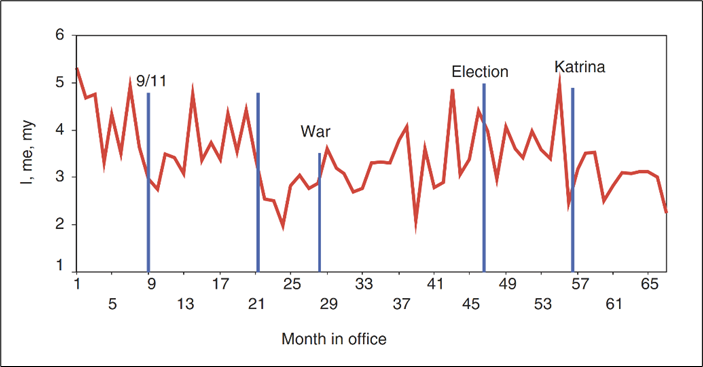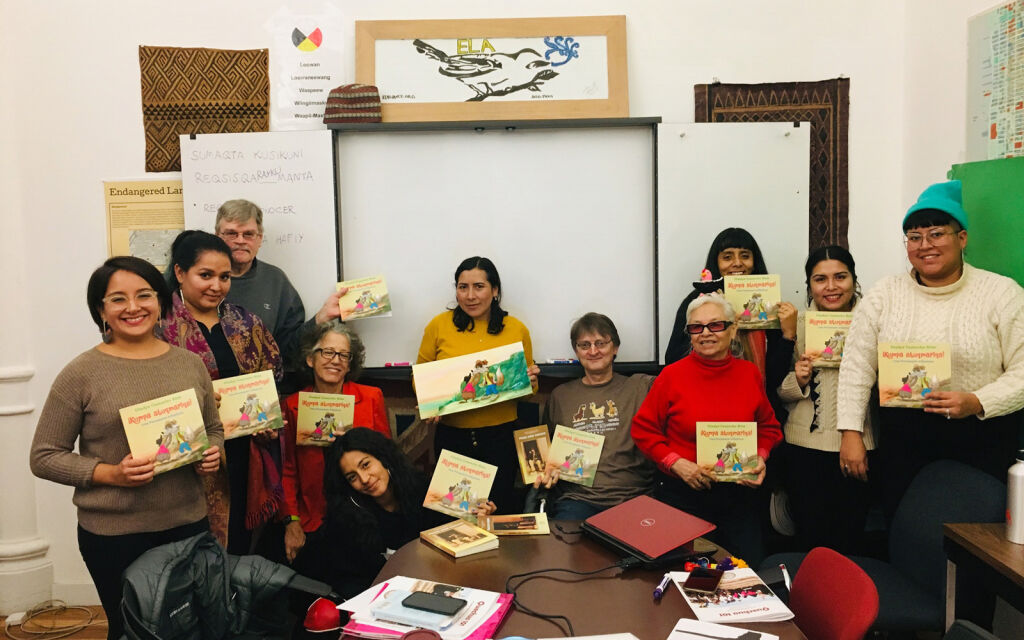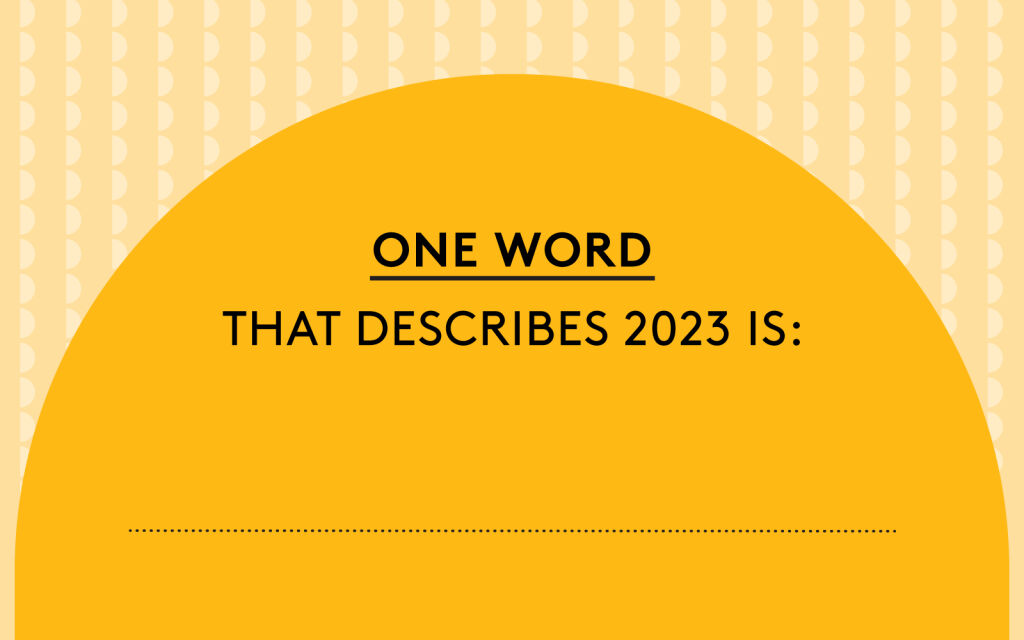Putin, Bush, and Pronouns: Presaging War?
Can linguistics help predict a war? This past weekend, Planet Word Advisor James Pennebaker and his colleagues Ryan Boyd and Ashwini Ashokkumar posted a short article on their blog, Wordwatchers, highlighting an interesting trend in Russian President Vladimir Putin’s press conferences.
Since the beginning of 2022, Putin has been using significantly fewer self-referential words (I.e., I, me, mine, etc.) than he usually does, which could indicate an attempt to “hide something or to actively deceive others,” according to the article. The authors note a similar pattern found in President George W. Bush’s language preceding the invasion of Iraq. While drops in self-referential words do not directly indicate the intention to start a war — or even an attempt to deceive others — analyses like this one can provide valuable insights into the rhetoric politicians use in advancing their goals.
Read the full article below.
Vladimir Putin’s Recent Language Suggests War
James W. Pennebaker, Ryan L. Boyd, and Ashwini Ashokkumar
February 20, 2022
We’ve spent decades analyzing the way people’s language reflects their psychological states. One of the most revealing words is “I” (and me, my, and mine). Self-referencing (that is, “I-words”) often signals honesty and genuine openness with others. On the other hand, when trying to hide something or to actively deceive others, people tend to use I-words at lower levels.
It may be possible to detect Vladimir Putin’s motives about Ukraine by analyzing the ways he uses language in his press conferences. Using a new version of the text analysis program Linguistic Inquiry and Word Count (LIWC-22), we have analyzed 21 press conferences and interviews Putin has given since 2004, with special attention to his meetings with the press since December 2021.
As can be seen in the graph, Putin’s five most recent meetings with the press since January stand out. Compared to his usual rate of I-words, his have dropped between 25–35% in his most recent press gatherings. At the same time, his use of risk-related words (threat, danger) and formal expressions of politeness (please, sorry, thank you – another sign of psychological distancing) have almost doubled compared to his numbers in previous years. Interestingly, he is also using words that express more certainty and confidence than in the past.
When we analyzed Putin’s language in December, we felt that Putin was not committed to any aggressive action in Ukraine. His word use had remained relatively stable for about five years. Given his language shifts over the last two months, however, we have changed our minds.
Our findings are in line with previous analyses of leaders preparing to launch an assault who understandably try to hide their intentions from their enemies. This was apparent with George W. Bush when he made the final decision to go to war against Iraq in 2003. In his weekly meetings with the press, his I-words dropped almost by half once he made the decision — this was reflected in his language six months before the war started.
It should be emphasized that drops in I-words can reflect many issues other than an intention to launch an invasion. That said, it’s hard to ignore this notable shift in Putin’s language when the stakes of his actions are so high.
To learn more about the methods and previous studies, check out the following sources.
Chung, C. K., & Pennebaker, J. W. (2011). Using computerized text analysis to assess threatening communications and actual behavior. In Chauvin, C. (Ed.), Threatening communications and behavior: Perspectives on the pursuit of public figures (pp.3-32). Washington, D. C.: The National Academies Press.
Pennebaker, J.W. (2011). Using computer analyses to identify language style and aggressive intent: The secret life of function words. Dynamics of Asymmetric Conflict, 4, 92-102. http://dx.doi.org/10.1080/17467586.2011.627932
Pennebaker, J.W., Boyd, R.L. Booth, R.J., Ashokkumar, A., & Francis, M.E. (2022). Linguistic Inquiry and Word Count, LIWC-22: A text analysis program. http://www.liwc.app
*For more information, contact Pennebaker at [email protected]. He is Professor of Psychology, University of Texas at Austin




